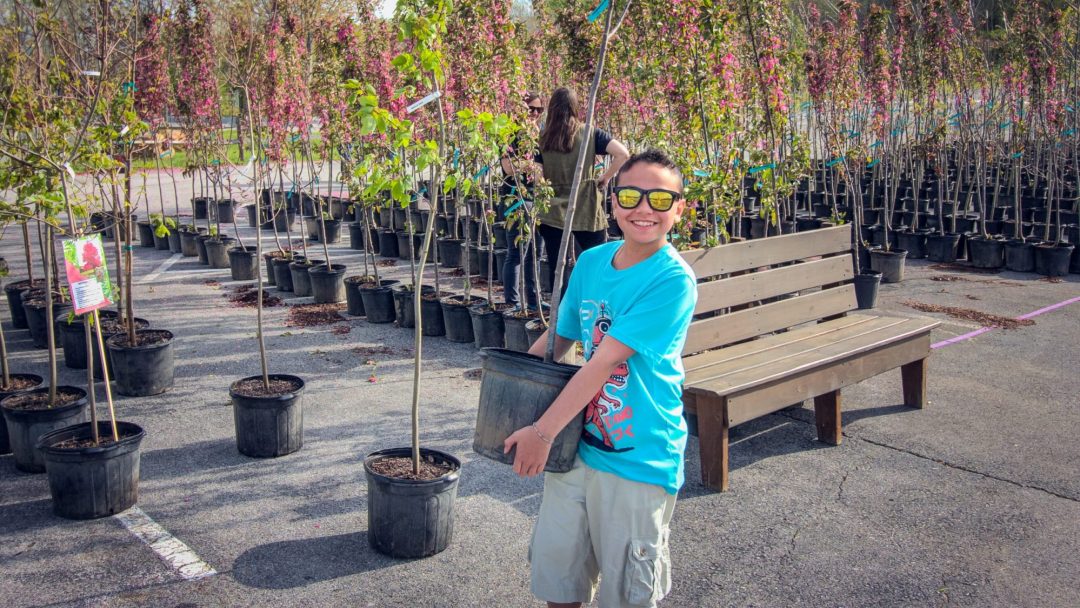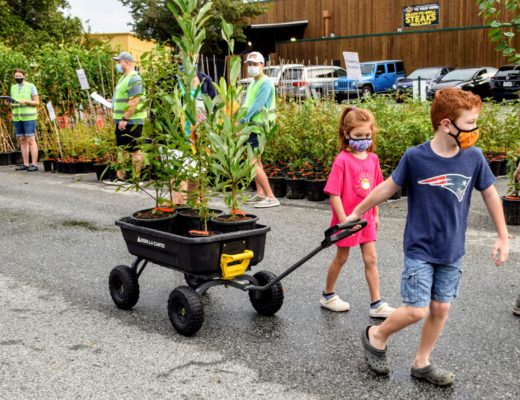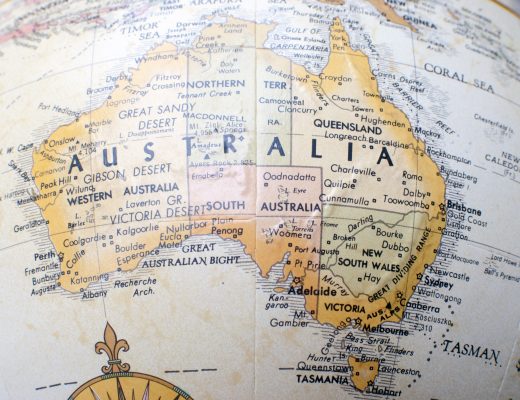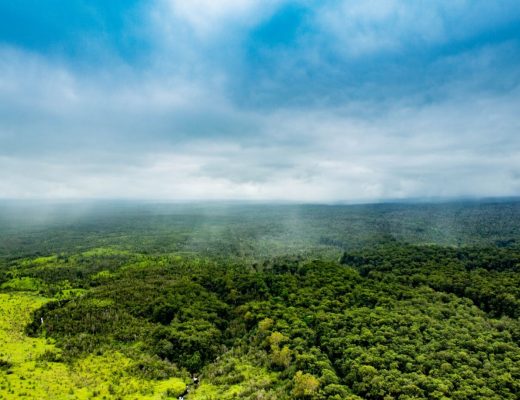Two years ago this September, Hurricane Florence swept in from the Atlantic and devastated large sections of the eastern seaboard with terrifying winds up to 150 mph. Just as bad was the precipitation. South Carolina alone received more than 23 inches of rain in some places — a state record. The impacts of this storm defy description. The loss of human life was gut-wrenching. And the loss of trees and other property was salt in the wound.
It is for just such a scenario that the Community Tree Recovery™ program was created in 2012. Since then, with help from Arbor Day Foundation members, FedEx, and other partners, more than 5 million trees have been donated to homeowners at some 775 distribution events. Always, it is by invitation of local authorities.
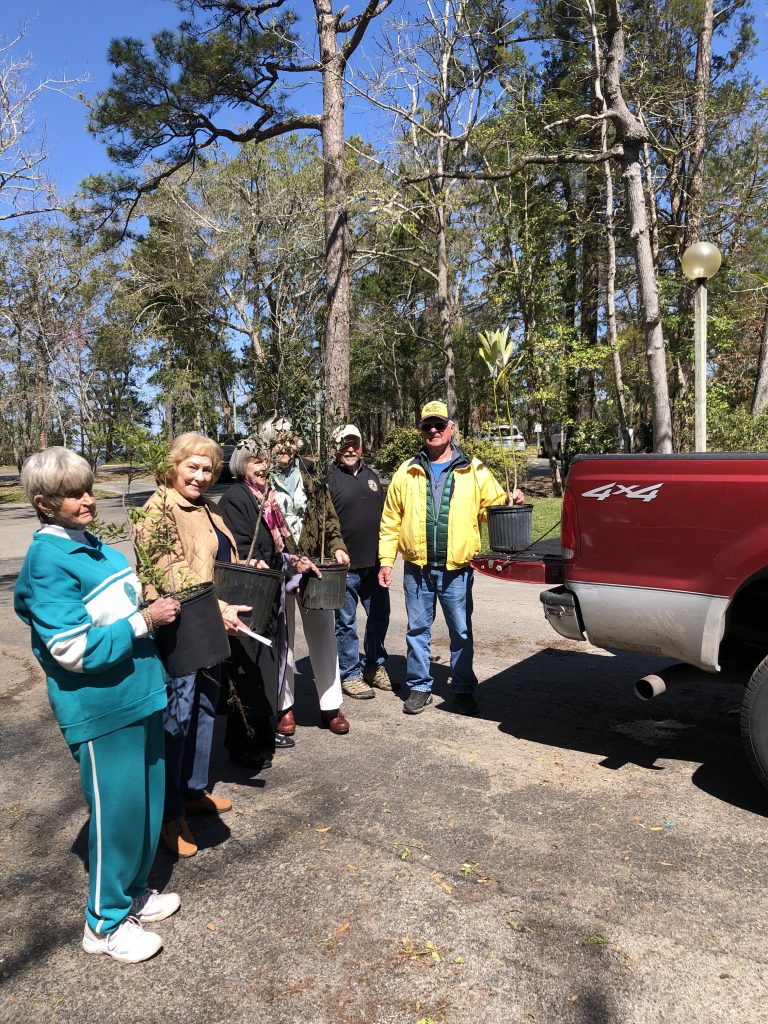
Such was the case in Pine Knoll Shores, North Carolina. Seven months after the disaster, 1,000 native trees were distributed in the community once described as “nestled in the maritime forest.” Beyond the number of trees is the effect they have on recipients, some who lost every tree in their yards. Town Clerk Sarah Williams said that while people were still trying to get back into their homes, “This is something we could give back — and give life. Our trees were knocked down by Florence, but not our spirits. With the help of the Arbor Day Foundation, Pine Knoll Shores citizens will once again have trees in their yards…”
A hundred miles to the south in Wilmington, 2,000 trees were distributed with the help of the Alliance for Cape Fear Trees. Kyle Yetter and his two children stood in line on a rainy day for the tree give-away. The family lost the centerpiece oak in their yard and have no shade in the summer. Kyle was pleased with the three trees given to his family along with the promise that these trees will someday restore shade for children and reduce the family’s electric bills.
Flooding was a major problem in Conway, South Carolina, with some areas inundated with up to 10 feet of water that remained in the area for nearly two weeks. City Arborist Wanda Lilly reported that “the full effects of the flooding will not be entirely visible for many years in the future as trees die off. It is imperative that we begin a tree planting plan to help mitigate the loss of the established trees.” To help this community, 1,127 cypresses, oaks, and dogwoods were distributed. In this case, residents who were given a tree were asked to post a photo on social media of them planting it at their
home and tag the city of Conway. The idea was to show the world the city’s resiliency following the hurricane’s destructive forces.
In the city of Marion, the flooding did $8.5 million of damage to homes, roads, and bridges. According to Frances Waite, urban and community forestry coordinator with the South Carolina Forest Service, a floodwater commission was formed to study the flooding problem and seek a comprehensive solution.
“Trees to help offset stormwater is one piece of the puzzle,” Frances says. To help, Community Tree Recovery assisted with the planting of 38 large-caliper trees along the city’s popular hike and bike trail. At a ceremony, Governor Henry McMaster spoke about how trees everywhere help mitigate floodwaters. In Marion, the new trees will not only alleviate future flooding, they are restoring the beauty and shade that attract residents
to the hike and bike trail for exercise and health.
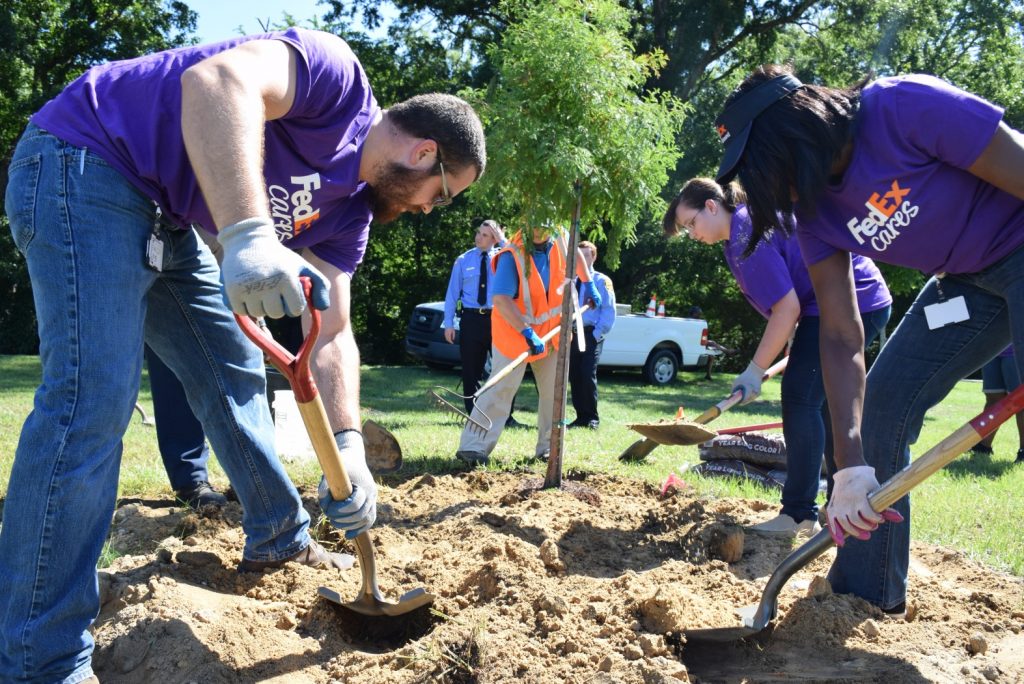
In the storm recovery area of the Carolinas and wherever natural disasters occur, the Community Tree Recovery program is ready to assist when invited. In addition to the comfort and hope the new trees offer to adults and children recovering from disasters, trees planted to date will have enormous benefits over the next 40 years for cleaner air and water, energy savings, and public health.
For more information about the impacts of this important program, please visit arborday.org/recovery.

